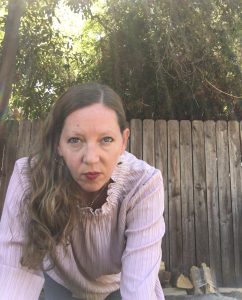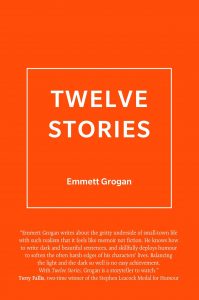In conversation with: Maggie Nelson, author of The Argonauts
by Bella Gerber-Johnstone | February 2, 2024

“I write the thing I think is best, not the thing I think will please the most people.”
When my friend gifted me a copy of Maggie Nelson’s bestseller The Argonauts for my birthday, I mentally placed it onto my ‘to read’ pile. It was a hot summer’s day, and frankly, I wasn’t quite ready to burst my bubble with ‘autotheory’.
The book looked strikingly familiar: I was sure I had stumbled across its cover at a specially curated table in Waterstones. You know the ones. Scanning the blurb of The Argonauts, it declared itself a sensitive piece of life writing, a deep dive into Nelson’s relationship with artist Harry Dodge, and a candid reflection on her journey into motherhood.
Fast forward to December. My essays were littered with the ‘New Woman’ (classic), marriage plots (juicy), and female hysteria (we’ve all been there). I had grown accustomed to nodding slowly in my tutorials, murmuring “yes, yes, that’s very…Dickensian, isn’t it?” every now and then. And so, heading home, Victorians safely zipped up in the suitcase on my floor, I was ready for a post-Michaelmas soul-search. I tentatively slid The Argonauts off my bookshelves, sunk into my bed, and devoured it in a day.
I quickly became obsessed. The deeply personal memoir discusses the taboo openly and fearlessly. Her partner, Harry Dodge, is transgender, but rejects the idea that he has transitioned in any way (‘”I’m not on my way anywhere”, Harry sometimes tells inquirers’). Nelson describes their marriage at Hollywood Chapel, hosted by a drag queen (who quite brilliantly goes on duty as greeter, bouncer, registrar). Soon after their impromptu wedding, the day before Prop 8 would come in (a ruling which would temporarily eliminate same-sex marriage), Nelson undergoes IVF while Harry starts injecting testosterone. As their bodies both change, The Argonauts follows a rather tender journey into parenthood. Littered throughout the memoir, Nelson quotes various intellectuals, turning to literary criticism and theory to further politicise the personal.
Where do you begin with someone so painfully clever? Nelson, I declared, confidently married theory with feeling; she described complex emotions with ease; she was candid without being self-indulgent. As coffees turned into pints, I announced that Nelson had a knack for putting words to the slippery feelings I hadn’t been able to grasp before. My friends sipped their beers and nodded knowingly.
A quick look at Nelson’s background reveals she was born in California in ‘73. She studied English at Wesleyan University, before going on to complete a PhD at the CUNY Graduate Centre. Nelson’s writing career got underway with a series of poetry collections and genre-hopping non-fiction. Her work skilfully covered a vast range of topics: her aunt’s murder, avant-garde art, even a daring philosophy on the colour blue. Mostly admired by a devout cult-following, it wasn’t until the publication of The Argonauts in 2015 that Nelson found breakout success.
Written in 2015, The Argonauts begins by acknowledging that it is “feral with vulnerability.”
I want to understand how Nelson copes with the publication of her innermost thoughts. She answers simply. “Life writing is hard,” she tells me, “for everyone affected by it.” I’m curious if she’s ever felt anxious about sharing such intimate parts of her life, if she’s ever afraid to hurt those she loves. “Of course I think about how my work affects those I love—it’s all part of the process. And the process is not a static thing, it’s ongoing and ever-changing.” What about sharing such vulnerable first drafts? “I’m never particularly anxious to share my work!” Nelson replies. “But I’ve come to learn that at a certain point the work needs the eyes of my smartest writer friends on it.” Nelson points out that “autobiography often conjures the illusion of —which is good and just, in that there is no way to ‘tell all’, and also, it takes a lot of work to be honest and articulate about a few things—one can’t take on everything.”
Nearly ten years on, I ask her why, out of all her work, The Argonauts was the one to win the National Books Critics Circle Award in Criticism in 2016 and become a New York Times best-seller. It’s a mix of things: “I’d already written a bunch of books, so I had some fans already (Bluets, from 2009, has a real following, as do The Red Parts and The Art of Cruelty) and the culture seemed eager to talk about queer family and gender at the time of the book’s release. It’s also just chance, a mystery.”
Today, Nelson has built a reputation for writing books that are hard to label. When The Argonauts was published, The Guardian decided it ‘defie[d] easy definition.’ I’m curious to see if Nelson saw this kind of pronouncement as a celebration of her writing; or a subtle critique. “I write the thing I think is best,” she says. “Not the thing I think will please the most people.”
The first few pages of The Argonauts unveil the title’s meaning. Nelson had sent her partner, Harry Dodge, a passage from Roland Barthes (French essayist and literary critic): ‘I love you,’ as Barthes wrote, is like ‘the Argonaut renewing his ship during its voyage without changing its name.’ Nelson wonderfully takes this to mean that whenever the lover utters the phrase I love you, its meaning must be renewed by each use, as ‘the very task of love and of language is to give to one and the same phrase inflections which will be forever new.’ There’s something beautiful about seeing ‘I love you’ as something ‘forever new.’ Great pick-up line, truly.
Part of me wonders if readers of The Argonauts need at least a surface-level understanding of criticism to fully grasp the book. What about readers who don’t know Barthes? I ask Nelson if she has ever worried that her interest in complex theory would be an obstacle to a mainstream success of The Argonauts. Nelson tells me “I don’t worry about readers in that way. I believe that readers can take care of themselves. And even something written with no theory… can be misunderstood.”
If she thinks her readers don’t need hand-holding, I’m curious to know what kind of reader she is. How does she like to be treated by the authors she loves? “Authors I love don’t treat me any which way, because they don’t know me,” she reflects. “I want them to write their best work and I am grateful if I get to read it. Attempts to please an unknown and unknowable reader are mostly acts of projection, and often reflect the hopes and fears of the artist more than any actuality. So I think it’s healthy, at least for me, to recognize that dynamic from the outset, and go from there.”
On a different note, I want to know more about the unconventional parallels Nelson draws between Harry’s gender identity and her own pregnancy. As Nelson explains: “Part of the point of pairing my pregnancy and the changes he was undergoing —along with scenes of death and ageing—was to point out the commonality of physical and psychological transformation throughout a life, in hopes of getting people to move off, or at least move through, their obsession with certain bodies and their so-called difference from the so-called normative.”
Our conversation steers towards the culture war– Nelson expresses her frustration at the ongoing discrimination against transgender people in the media and politics. “The culture war battlefield around transgender folks is a somewhat predictable if damaging detour on our way to imagining and building and living in a world that accords dignity and autonomy to people and bodies of all kinds,” she says. “I’m in for that.” Badass.
So, what’s next for Nelson? A new collection of essays called Like Love: Essays and Conversations comes out this April. She tells me it “pulls together 20 years of writing on art.” Nelson realised “there was a critical mass of art essays [I’d written] lying around in catalogues or magazines that might benefit from finding a new/different readership.” I’m keen to hear more. Nelson reveals the essays are “arranged chronologically and you can really see a lot of the same themes and interests evolving over time, albeit refracted through distinct artists and practices.”
If you’re looking for a bit of soul searching, Nelson is the place to go. I’ll leave you with one of the favourite moments from The Argonauts: ‘I feel I can give you everything without giving myself away, I whispered in your basement bed. If one does one’s solitude right, this is the prize.’
Maggie Nelson will be holding events in London and Oxford in Spring 2024. Watch this space.∎
Words by Bella Gerber-Johnstone. Image courtesy of Maggie Nelson.




